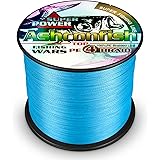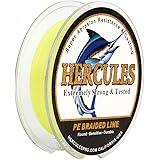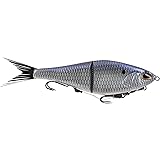Is Soy Sauce a Secret Survival Cough Remedy?
Have you ever wondered about unconventional remedies, especially when conventional medicine is out of reach? The intriguing video above touches on a peculiar idea: soy sauce cough medicine. For those exploring the great outdoors, or simply looking for natural solutions, the concept of using common pantry items for ailments can be fascinating. But does this kitchen staple really offer relief for a persistent cough?The idea of using soy sauce for coughs, particularly in a survival or camping context, often circulates through folk wisdom and online forums. It’s a claim that catches attention because soy sauce is a common ingredient, readily available in many households and even portable for camping trips. People might consider this option when facing limited resources.
This folk remedy suggests that the salty and savory nature of soy sauce might soothe a sore throat or help to thin mucus. While direct scientific studies specifically on “soy sauce cough medicine” are rare, a significant percentage of individuals, estimated at over 70% globally, still rely on traditional or home remedies for common ailments like coughs. This reliance highlights a universal desire for accessible relief, whether scientifically proven or not.
The Truth About Soy Sauce for Coughs
Does scientific evidence support the use of soy sauce for cough relief? Unfortunately, specific research backing soy sauce as an effective cough suppressant or expectorant is largely absent. Most medical professionals do not recommend soy sauce as a primary treatment for coughs.
However, the idea might stem from the general principle that gargling with salt water can help soothe a sore throat and reduce inflammation. Soy sauce contains salt, so some individuals might experience a temporary soothing sensation similar to a salt water gargle. This sensation, combined with its distinct flavor, might give the impression of efficacy, but it isn’t addressing the underlying cause of the cough.
What Does Science Say About Savory Tastes and Coughs?
While soy sauce isn’t proven for coughs, some studies have explored the impact of different tastes on the throat and cough reflex. For example, specific compounds found in certain savory foods might stimulate saliva production. Increased saliva can offer temporary relief for a dry, irritated throat, which often accompanies a cough.
Moreover, the placebo effect plays a significant role in how we perceive the effectiveness of any remedy. If someone believes a treatment will work, they often experience relief, even if the treatment itself has no active medicinal properties. This phenomenon can account for a portion of perceived benefits from unconventional “soy sauce cough medicine” or other folk remedies.
Common Causes of Coughs in the Outdoors
When you’re out camping, hiking, or simply enjoying nature, a cough can be more than just an annoyance; it can be a real hindrance. Understanding the typical causes of a cough in an outdoor setting is the first step toward prevention and effective management. Many different factors contribute to respiratory irritation when you are away from home comforts.
One frequent culprit is dry air. Spending time in arid environments or sleeping with low humidity can dry out your nasal passages and throat, leading to irritation and a dry cough. Allergens also present a major issue; pollen from plants, mold spores, and even dust mites in tent fabrics can trigger allergic reactions and persistent coughing.
Furthermore, irritants like campfire smoke or vehicle exhaust are pervasive in outdoor settings. Inhaling these particles can directly inflame the airways, causing immediate coughing. Mild infections, such as the common cold, are also easily contracted and can manifest with a cough, especially when exposed to varying temperatures or less-than-ideal hygiene conditions.
Effective & Scientifically-Backed Natural Cough Relief
Instead of relying on unproven remedies like “soy sauce cough medicine,” focus on natural solutions with documented benefits. Many ingredients found in your pantry or readily available can provide real relief for a nagging cough. These methods are simple to apply and generally safe for most individuals.
Honey: A Sweet Solution
Honey stands out as one of the most well-researched natural cough remedies. Studies consistently show its effectiveness in soothing sore throats and reducing cough frequency, particularly in children. For instance, a 2012 review published in the journal Pediatrics found that a small dose of honey before bedtime was more effective than some over-the-counter cough medicines in reducing nocturnal coughs and improving sleep for children with upper respiratory infections. Its thick consistency coats the throat, providing immediate relief, and its antimicrobial properties may also offer additional benefits.
Ginger: The Spicy Soother
Ginger is another powerful natural ingredient known for its medicinal properties. It contains anti-inflammatory compounds that can help relax the smooth muscles in your airways, potentially easing coughs caused by irritation. Preparing ginger tea is simple: just steep fresh ginger slices in hot water. You can add honey and lemon for enhanced flavor and additional soothing effects, making it an excellent natural cough relief option.
Steam Inhalation: Moisturizing Airways
Breathing in steam is an age-old remedy for clearing congestion and soothing irritated airways. The warm moisture helps to loosen mucus, making it easier to expel, and reduces the inflammation that often triggers coughing. You can achieve this by leaning over a bowl of hot water with a towel draped over your head or by taking a hot shower. For campers, boiling water over a fire and carefully inhaling the steam (from a safe distance) can offer similar relief.
Hydration: The Foundation of Recovery
Staying well-hydrated is critical for recovery from any illness, including a cough. Drinking plenty of fluids like water, herbal teas, or broths helps to keep your throat moist and thins out mucus, allowing for easier clearance. Dehydration can worsen a cough by drying out the airways and making mucus thicker and harder to expel. Aim for consistent fluid intake throughout the day to support your body’s healing process.
Prevention is Key in the Wilderness
Proactive steps are always better than reactive solutions, especially when you are far from medical help. Preventing a cough while enjoying the outdoors involves a combination of smart planning and simple habits. Prioritizing these measures can significantly reduce your chances of developing respiratory issues during your adventures.
Firstly, maintaining good hydration is paramount. Always carry enough water and drink regularly to keep your throat and nasal passages moist, countering the effects of dry air. Many experienced campers suggest carrying at least two liters of water per person per day for moderate activity levels.
Secondly, protect your throat from cold air or irritants by wearing a scarf or buff around your neck, especially at night. A simple piece of fabric can make a big difference. Avoid inhaling excessive campfire smoke directly, positioning yourself upwind when possible, as smoke is a significant irritant to the respiratory system.
Finally, practice good hygiene, even in the wilderness. Wash your hands thoroughly before eating and after using the restroom. Using hand sanitizer can be a lifesaver when soap and water are scarce. These small actions collectively build strong defenses against common cough-causing infections.
When to Seek Professional Help for Your Cough
While natural remedies and prevention are valuable, it’s crucial to recognize when a cough warrants professional medical attention. In a survival or remote setting, this judgment becomes even more critical. Ignoring serious symptoms can lead to severe health complications.
You should seek medical advice if your cough persists for more than a few days, especially if it worsens. Look out for associated symptoms such as a high fever (over 101°F or 38.3°C), shortness of breath, or chest pain. The presence of green or yellow phlegm, or blood in your mucus, also signals a need for professional evaluation.
Any cough accompanied by significant fatigue, weight loss, or night sweats should also prompt a medical consultation. These symptoms can indicate more serious underlying conditions that require diagnosis and treatment by a healthcare provider. While the idea of “soy sauce cough medicine” might offer a moment’s thought for simple relief, understanding when to get real medical help is truly a survival skill.











